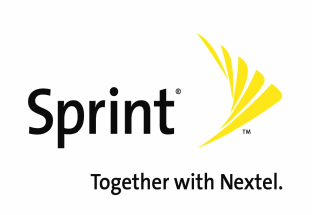Comcast, Time Warner, Cox Pull Plug on Sprint's Pivot: What Can We Learn? The Shelly Palmer Report

This week, three of the nation's largest cable companies quietly pulled the plug on a joint cell-phone venture with Sprint Nextel Corp., called Pivot. The goal of this service offering was to help the cablers compete with the Telco Triple Play (Video, Voice & Data). In theory, a Quadruple Play (Video, Voice, Data plus a mobile phone) would seal the deal and make the cable offer irresistible to consumers. In practice, it just didn't work.
A few years ago, MVNOs (Mobile Virtual Network Operators) were all the rage. Everybody wanted one. The problem, no one was willing to discuss at the time, was the fact that controlling a consumer experience at retail is one of the hardest things any business can attempt to do. Cell phones are a high touch business and that "fact of life" was true then and it isn't like to change any time soon.
The MVNO death roll includes: The ESPN Phone, Disney Mobile, Voce, Sonopia, Dot, and many, many more. In fact, the only two healthy MVNOs I can think of are Virgin Mobile and Boost Mobile.
As interesting as historical this footnote may be, you may be wondering why I would care about an obscure service offering dying a quiet death. Well, it's a quarter to the digital transition and there's a bunch of bandwidth that has been bought at auction specifically for the purpose of wireless offerings. What lessons can we learn from the abject failure of the MVNO model as we enter the age of "all digital everything?"
"We remain committed to bringing a wireless component to our portfolio of services, but we don't believe Pivot was the best option," said Cox spokeswoman Jill Ullman. OK, let's say that's true. What would you do better next time? Would you invest in store fronts to create a better retail experience, or would you partner with an existing retail chain? Could you imagine a sales clerk at one of the Big Box stores trying to explain a service offering from a brand that is not AT&T or Verizon? Even Sprint is struggling to position their brand.
What about the actual service? Would it just be a multi-media phone on an existing network with "also ran" capabilities, or would it be a fully integrated 4G wireless device?
A couple of weeks ago David K. Rehr, president of the NAB (National Association of Broadcasters) gave a speech that seriously touted the advent of mobile television on handsets. Last week I wrote a piece that challenged the idea, but the death of Pivot puts an exclamation point on my thesis. Retail is hard and Mobile Retail is really hard.
Our industry is having a challenging year. The economy is tough. We are likely to see gas prices so high this summer that they directly impact the advertising business. Automotive advertising (or the lack thereof) on broadcast television has its own set of challenges and with all of it, we must look to the future and think about what kind of handheld, wireless devices consumers will want to consume our content on. Who will create the networks and service offerings? Is there a probable future where cable companies really offer a compelling and competitive wireless product? Should they?
People schooled-in-the-art knew that Pivot was doomed from the start. MVNOs made very little business sense, even for the cable companies. People will argue that, "that was then and this is now." True enough, but the underlying business principals of running a successful mobile communications company are not likely to change. With Verizon and AT&T having just acquired billions of dollars of digital spectrum, everyone seems to think that there will be lots of opportunities to create a new class of "must have" communications and multi-media products. I agree. The big question is, who will get to bring them to market? We should take a long, hard look at the demise of Pivot. There may be several good reasons that this organization did not succeed, but one is truly conspicuous: consumers voted with their wallets. Pivot--RIP.
Shelly Palmer is Managing Director of Advanced Media Ventures Group LLC and the author of Television Disrupted: The Transition from Network to Networked TV (2006, Focal Press). Shelly is also President of the National Academy of Television Arts & Sciences, NY (the organization that bestows the coveted Emmy® Awards). He is the Vice-Chairman of the National Academy of Media Arts & Sciences an organization dedicated to education and leadership in the areas of technology, media and entertainment. Palmer also oversees the Advanced Media Technology Emmy® Awards which honors outstanding achievements in the science and technology of advanced media. You can read Shelly’s blog here. Shelly can be reached at shelly@palmer.net
Check out the Shelly Palmer Report archive.


